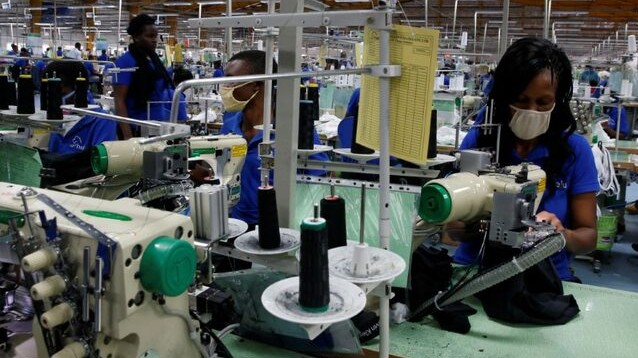Kenyan workers observe Labour Day amid pay cut woes, job losses and inflation

As inflation continues to outpace wage growth, workers are being forced to make tough decisions, cutting back on non-essential purchases and adopting more frugal lifestyles.
Kenyan workers are marking Labour Day with a stark reminder of the economic hardships they continue to face, as higher deductions from their paychecks have significantly reduced their take-home salaries.
Job cuts, rising inflation and the increased cost of living have combined to push many employees to the brink of financial difficulty.
More To Read
- Ruto says NSSF contributions double in two years, could hit Sh1 trillion by 2027
- KNBS data shows uneven food price shifts as inflation dips slightly
- World Bank upgrades Kenya’s growth outlook to 4.9 per cent, warns of elevated risks
- Court awards Sh5 million to Kenyan trafficked to Myanmar for online fraud
- CBK targets Sh40 billion in new Treasury bond auction
- Private business activity growth surges in October on strengthening sales
This year, the government increased National Social Security Fund (NSSF) contributions for workers earning Sh36,000 and above.
For those earning Sh72,000 and above, the deductions more than doubled, which has had an immediate impact on workers’ net pay.
For example, an employee earning Sh50,000 now takes home Sh39,029, a decrease of over Sh500 from January’s paycheck.
This reduction extends to employees earning Sh100,000, who now receive Sh1,512 less than they did earlier in the year. These changes affect more than two million workers across the country.
Adding to the burden of higher deductions, many employees are still grappling with the rising cost of living. Inflation has shot up, now standing at 4.1 per cent in April 2025, up from 2.72 per cent in October 2024.
This inflation rate directly impacts workers' purchasing power, forcing them to spend more on daily essentials while their earnings shrink.
A report on wages in 2023 showed that real wage growth had already dipped by 4.1 per cent after adjusting for inflation, showing the broader impact on workers.
As the cost of living increases, businesses have found themselves in a tight spot, leading to significant job cuts.
According to a Central Bank Survey, nearly half of companies laid off casual workers in 2024, with 31 per cent reducing their contract staff. Several non-bank businesses have also been forced to downsize, with permanent positions being eliminated at an alarming rate compared to banks.
The higher salary deductions and the pressure from job losses have left workers scrambling to make ends meet.
With businesses struggling to maintain their operations, many Kenyans are seeing a drop in their disposable income.
As inflation continues to outpace wage growth, workers are being forced to make tough decisions, cutting back on non-essential purchases and adopting more frugal lifestyles.
While workers face these financial challenges, the government has managed to collect additional funds through the increased deductions.
The NSSF has brought in an additional Sh220 billion since the changes began in 2023. The PAYE tax collection has also risen from Sh495 billion to Sh555 billion, partly due to higher taxes on those earning above Sh500,000.
The introduction of the housing levy, which takes 1.5 per cent of employees' salaries, has added Sh86 billion to government coffers as of December 2024.
However, for many workers, the government's growing revenues are a stark contrast to their shrinking paychecks.
Top Stories Today













































